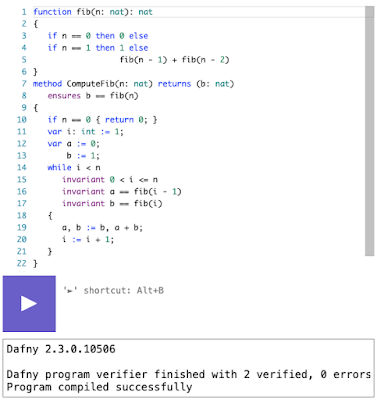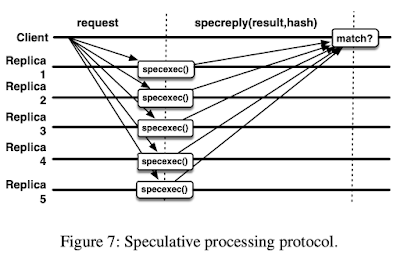Armada: Low-Effort Verification of High-Performance Concurrent Programs

This paper appeared in PLDI 2020 and is authored by Jacob R. Lorch, Yixuan Chen, Manos Kapritsos, Bryan Parno, Shaz Qadeer, Upamanyu Sharma, James R. Wilcox, and Xueyuan Zhao. The paper presents the Armada framework for code-level verification of concurrent (multithreaded rather than distributed) programs. Armada is roughly a stepwise-refinement extended version of Dafny . So that is where I will start explaining. Dafny Dafny is an open source iterative compiled language for writing verified code. The code is verified with respect to the specifications the developer writes by adding high-level annotations alongside the code, such as ensures P and invariant P. At https://rise4fun.com/Dafny/tutorial you will find an interactive tutorial, that will get you up and running proving programs with Dafny. It is really fun, you should try this out now! Dafny leverages Z3 for discharging proof obligations. Ok, so what is Z3? Z3 is a popular open source Satisfiability modulo theories (SMT)...



